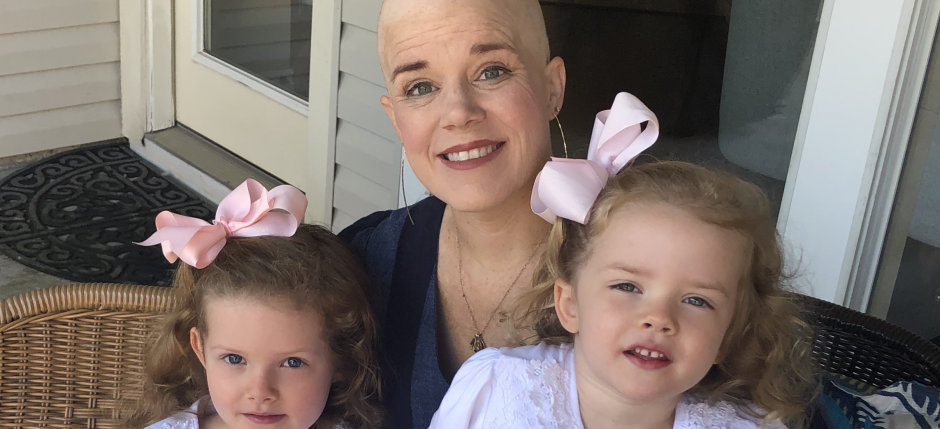
Cancer Survivors Today
When Brad Slocum began to notice blood in his pee at the age of 46, he wasn’t overly alarmed. He had always been one of those that engaged in strenuous exercise, so he was aware that this was a common occurrence among them. It is wrestled competitively in high school and college. Later, as an adult living in Southern California close to the ocean, he frequently played beach volleyball or surfed. He and his wife went skiing at Mammoth Lakes in the Eastern Sierras during the winter. He appeared to be in excellent health, which was confirmed by his yearly examinations.
However, the light pink turned blood red during the following few months. He also had mysterious exhaustion and back pain. In September 2005, he saw his physician. Initial examinations revealed a sizable tumor in and around one of his kidneys. He developed metastatic kidney cancer in stage 4 due to additional investigations. His physician estimated that he only had six to nine months to live.
Slocum and his wife had a 10-month-old boy; he was their first child. He recently sold an institutional money management company he cofounded to a significant financial services giant, adding to his fortune and giving him an unheard-of sense of professional success. It was as if a lead brick had been slammed into his skull upon hearing his doctor deliver the final diagnosis. Slocum suddenly learned that his life was about to end after thinking it couldn’t be much better.
The Ways Of Longevity
Over the past two decades, cancer has undergone several significant changes. They begin with early detection. Tumors are now more frequently found sooner than before. They have progressed beyond the initial site, thanks to the prevalence of screening tests and new, more sophisticated imaging technologies. Even when tumors have spread to other organs, finding them early can help a patient endure treatment and battle the disease.
Personalized medicine, which enables doctors to recognize and respond to genetic and biological abnormalities in a patient’s cancer, targeted immunotherapy, a novel type of treatment, and personalized medicine are other impressive medical advancements. These include drugs designed to act against specific molecules involved in cancer cell growth in particular kinds of cancer, targeted therapies, personalized medicine, and targeted immunotherapy.
The emerging discipline of psycho-oncology, which has increased knowledge of cancer patients’ emotional and social requirements and has been proven to both lengthen and improve the quality of cancer patients’ lives, comes in last. People may be more inclined to focus on their general physical fitness and participate in experimental therapies and clinical trials, which may lengthen their lives if they are better informed and supported.
How Life Continues
Susan Gubar, an emerita English professor and literary critic at Indiana University, received an ovarian cancer diagnosis in 2008. The prognosis for her at age 63 was three to five years. It completely shocked her. She claims, “I felt like I was a bird flying in the lovely blue yonder, and I was shot out of the sky.”
As described by Gubar in her book Memoir of a Debulked Woman, Gubar underwent a dramatic and crippling “debulking” operation in which physicians removed her tumor and abdominal organs. It was followed by 20 weeks of chemotherapy and surgery for treatment-related illnesses. She was faced with a recurrence of ovarian cancer and treatment after a year of remission. Her remission periods after each round of chemotherapy got shorter, and her disease returned. She started to question if it would be worth subjecting herself and her family to the agony of chemotherapy in exchange for dwindling intervals of wellness.
Then, in 2012, her physician enrolled her in a clinical study for targeted therapy. Her cancer has been controlled since she began the new treatment, and in 2013 she achieved her five-year survival goal while still taking the medication. According to her, “the previous two years have been amazing” in terms of health.
Reducing the harm
Numerous elements, such as one’s innate propensity toward optimism or pessimism, physical health, financial situation, and degree of social support, influence how one manages life with cancer. As more and more people deal with the illness as a chronic condition, specialists are emphasizing actions and mental challenges people can take to strengthen themselves.
Professional mental health services can be quite helpful in treating anxiety and depression; techniques that support a sense of meaning and purpose in life have shown to be incredibly effective. Cancer patients and their caregivers can participate in a meaning-centered psychotherapy program at Memorial Sloan Kettering Cancer Center in New York, which helps them understand that they have power over their attitude amid suffering. They discover that expression of one’s creativity, openness to love and beauty, and awareness of one’s and ancestors’ legacies are all ways to draw meaning. Patients who participated in meaning-centered group therapy demonstrated noticeably better improvements in spiritual well-being and less anxiety than those in conventional group therapy in a controlled trial published in Psycho-Oncology last year.

Recent Comments